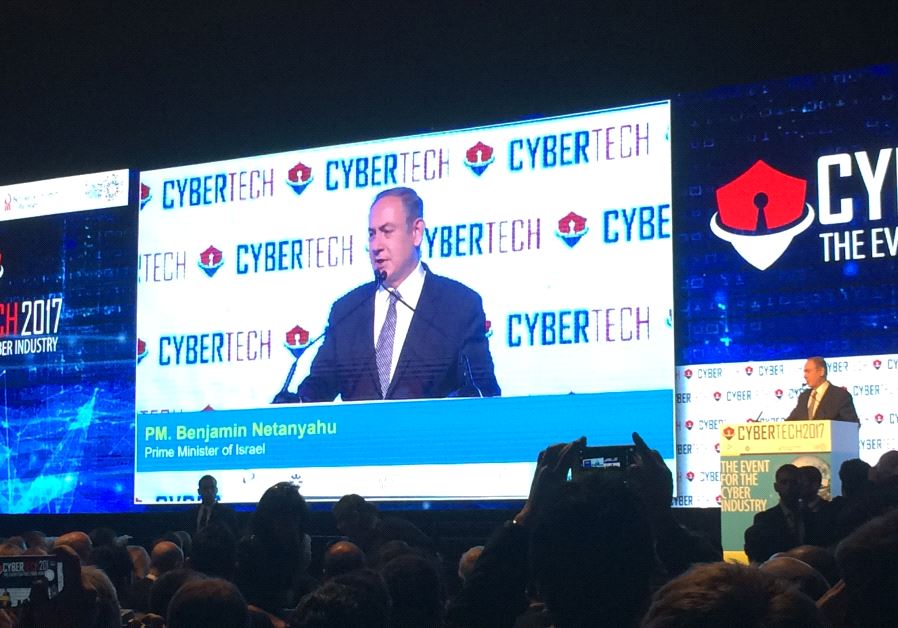Netanyahu calls for international collaboration to beef up cyber security
Global company execs, government leaders advocate cooperation in the global fight against Internet-based terror.
 Benjamin Netanyahu speaking at the 2017 Cybertech Tel Aviv conference(photo credit: SHARON UDASIN)Updated:
Benjamin Netanyahu speaking at the 2017 Cybertech Tel Aviv conference(photo credit: SHARON UDASIN)Updated: